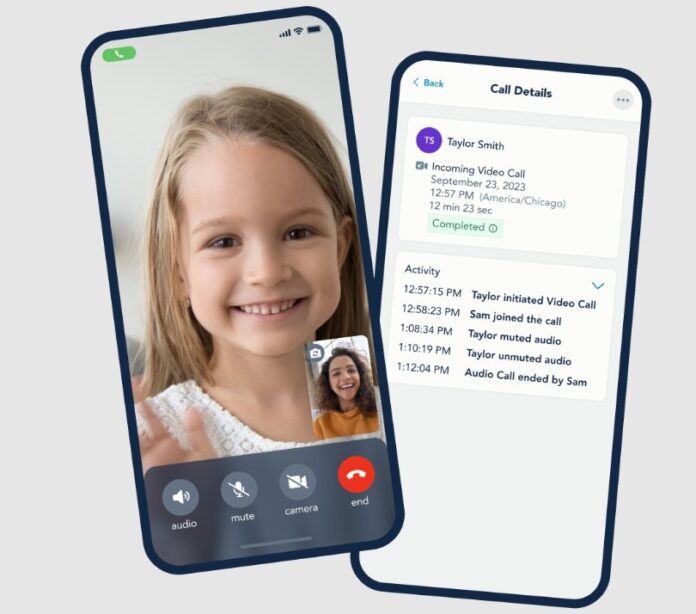Families and professionals in family law settings face complicated systems, conflicting information, and emotionally charged situations.
Accurate data access helps everyone navigate custody issues with greater confidence.
Modern tools now give parents and attorneys powerful ways to gather, verify, and organize information that makes legal decisions easier to manage.
Guided platforms, AI research assistants, and investigative technologies all play a part in building stronger cases and reducing harmful misinformation.
Custody Management Platforms for Families

Custody X Change gives parents a structured way to organize parenting schedules without constant involvement of courts or third parties.
A clean digital interface guides users through schedule creation that fits around school requirements, holiday rotations, transportation arrangements, or special medical needs.
Parents also gain access to detailed templates that match expectations in many family courts, helping them submit plans that are clear, consistent, and easy for judges to review.
An announcement about upcoming points helps explain key functions parents use most often, so several core features can be highlighted clearly:
Key platform features include:
- Interactive calendar that calculates parenting time accurately
- Parenting plan templates compatible with court formatting
- Built-in messaging, expense tracking, and journaling
- Tools for storing records in a secure, long-term database
An interactive calendar offers major benefits because time-sharing disputes often start with simple misunderstandings.
Calculations generated automatically help reduce conflict, and parents stay more confident in documented plans.
Extra tools such as messaging logs or expense records become extremely valuable in disputes where accountability matters.
Many families report that the platform makes communication less stressful because both sides can view the same schedule and documentation.
Another announcement helps summarize why parents find the platform helpful in real-world situations:
- Ability to manage arrangements independently
- Lower cost compared to extended legal help
- Secure storage for schedules and communication
- Flexibility for collaborative or solo use
Custody X Change remains budget friendly and gives users long-term access to records.
Parents who want greater control over custody arrangements often rely on the platform as a central hub that reduces stress and creates clarity around responsibilities.
Investigative Data Gathering Tools for Attorneys

Skip tracing supports attorneys by locating individuals, verifying records, and uncovering assets that may affect custody or support decisions.
Tracers provides access to multiple databases, giving attorneys the ability to cross-check contact information or track down parents who avoid communication.
Cases involving missed support payments, hidden assets, or false statements often depend on accurate investigative work.
Common techniques include:
- Reverse phone lookups
- Email address searches
- License plate and vehicle queries
- Social media and location-based analysis
Many family law cases benefit from fast, reliable data collection, especially when a parent cannot be located or provides misleading information.
Confidential searches often affect custody cases in situations involving safety risks, criminal records, or incarceration.
Looking through Orange County jail inmate booking information offers clear insight into all aspects of the case.
Legal AI Tools Used by Family Law Professionals

Family law attorneys use advanced AI systems to research laws, draft documents, and streamline daily tasks.
Many cases involve heavy documentation, legal analysis, and tight deadlines, so automated support helps improve accuracy and reduce unnecessary work.
Legal Research and Document Review
CoCounsel by Thomson Reuters supports attorneys by analyzing legal questions and generating structured responses with natural language processing capabilities.
It drafts objections, identifies relevant arguments, and reviews extensive case files with impressive speed.
Lexis+ AI assists attorneys by building accurate citations and generating well-supported interpretations to help create stronger custody strategies.
Westlaw Edge offers cross-jurisdiction comparisons so attorneys can quickly find precedent that matches custody-related issues.
Research tool capabilities include:
- Rapid legal question analysis
- Automated citation creation
- Precedent comparison across jurisdictions
- Document review at large scale
Workflow and Automation Tools
Clearbrief enhances documents by linking statements to verified evidence inside Word.
Clio Duo AI helps attorneys schedule meetings, manage emails, and generate summaries inside a secure legal workspace.
Billables AI tracks working hours automatically and creates detailed narratives that sync smoothly with Outlook, Gmail, and Clio.
Workflow improvements provided by these tools include:
- Faster document preparation
- Automated scheduling and client communication
- Streamlined billing and time management
- Stronger evidence linking for court documents
Outcome Prediction and Online Dispute Resolution
CustodiAI in Taiwan attempts to predict custody outcomes using a large dataset.
Accuracy levels near ninety percent have been reported, though professionals still apply their own judgment carefully.
ODR.com supports online dispute resolution services and has already assisted with thousands of family law cases.
Bliss Divorce guides couples through asset division, negotiation, and custody planning through AI-supported mediation features.
ODR and prediction tools support tasks such as:
- Mediation for asset division
- Scheduling custody arrangements
- Predictive modeling for likely outcomes
- Reducing reliance on in-person negotiations
Challenges and Considerations

Families and professionals must remain aware of several important limitations when depending on digital tools.
Privacy concerns require consistent attention because platforms handle sensitive information involving children, addresses, finances, and communication logs.
AI systems also have flaws, including misinterpretation of context or emotional factors.
Human oversight remains essential, especially in cases involving safety, mental health, or complex allegations.
Key challenges to consider include:
- Protecting confidential family information
- Misinterpretations created by automated tools
- High subscription costs for advanced platforms
- Unequal access for lower-income families or small firms
Costs vary significantly, which may limit access for certain families or attorneys.
Smaller firms sometimes struggle with paid research databases or premium AI features, which can create gaps in available resources.
Personal judgment and legal expertise remain vital parts of the decision-making process despite improvements in automation.
The Bottom Line
Growing access to digital tools empowers families and attorneys to manage custody information with greater accuracy.
Platforms for parents, AI research assistants for attorneys, and investigative tools for tracing individuals now create a more organized approach to family law challenges.
Families who self-manage their cases gain confidence, and legal professionals benefit from clearer evidence and faster research.







